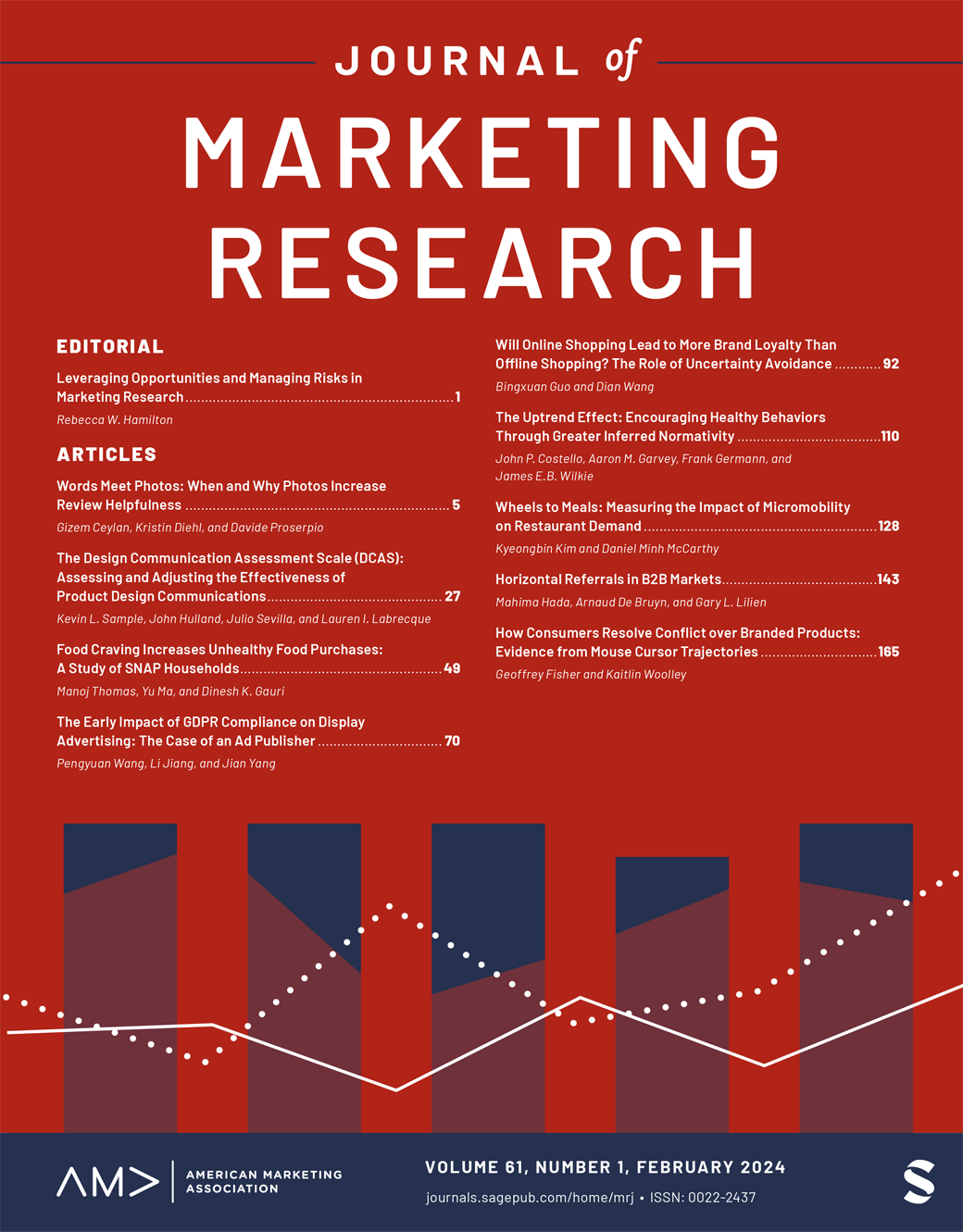EXPRESS: Who Shares Fake News? Uncovering Insights from Social Media Users' Post Histories
IF 5
1区 管理学
Q1 BUSINESS
引用次数: 0
Abstract
We propose that social-media users’ own post histories are an underused yet valuable resource for studying fake-news sharing. By extracting textual cues from their prior posts, and contrasting their prevalence against random social-media users and others (e.g., those with similar socio-demographics, political news-sharers, and fact-check sharers), researchers can identify cues that distinguish fake-news sharers, predict those most likely to share fake news, and identify promising constructs to build interventions. Our research includes studies along these lines. In Study 1, we explore the distinctive language patterns of fake-news sharers, highlighting elements such as their higher use of anger and power-related words. In Study 2, we show that adding textual cues into predictive models enhances their accuracy in predicting fake-news sharers. In Study 3, we explore the contrasting role of trait and situational anger, and show trait anger is associated with a greater propensity to share both true and fake news. In Study 4, we introduce a way to authenticate Twitter accounts in surveys, before using it to explore how crafting an ad copy that resonates with users’ sense of power encourages the adoption of fact-checking tools. We hope to encourage the use of novel research methods for marketers and misinformation researchers.快讯谁在分享假新闻?从社交媒体用户的发帖历史中发掘洞察力
我们提出,社交媒体用户自己的发帖历史是研究假新闻分享的一个未被充分利用的宝贵资源。通过从用户之前发布的帖子中提取文本线索,并将这些线索的普遍程度与随机社交媒体用户和其他人(如具有相似社会人口统计学特征的用户、政治新闻分享者和事实核查分享者)进行对比,研究人员可以识别出区分假新闻分享者的线索,预测那些最有可能分享假新闻的用户,并识别出有希望建立干预措施的构造。我们的研究包括这些方面的研究。在研究 1 中,我们探讨了假新闻分享者的独特语言模式,突出强调了他们较多使用愤怒和权力相关词汇等要素。在研究 2 中,我们发现在预测模型中加入文本线索可提高模型预测假新闻分享者的准确性。在研究 3 中,我们探讨了特质愤怒和情境愤怒的对比作用,结果表明特质愤怒与更倾向于分享真假新闻有关。在研究 4 中,我们介绍了一种在调查中验证 Twitter 账户的方法,然后用它来探讨如何制作广告文案以引起用户的权力感共鸣,从而鼓励用户采用事实核查工具。我们希望鼓励营销人员和错误信息研究人员使用新颖的研究方法。
本文章由计算机程序翻译,如有差异,请以英文原文为准。
求助全文
约1分钟内获得全文
求助全文
来源期刊

Journal of Marketing Research
BUSINESS-
CiteScore
10.30
自引率
6.60%
发文量
79
期刊介绍:
JMR is written for those academics and practitioners of marketing research who need to be in the forefront of the profession and in possession of the industry"s cutting-edge information. JMR publishes articles representing the entire spectrum of research in marketing. The editorial content is peer-reviewed by an expert panel of leading academics. Articles address the concepts, methods, and applications of marketing research that present new techniques for solving marketing problems; contribute to marketing knowledge based on the use of experimental, descriptive, or analytical techniques; and review and comment on the developments and concepts in related fields that have a bearing on the research industry and its practices.
 求助内容:
求助内容: 应助结果提醒方式:
应助结果提醒方式:


